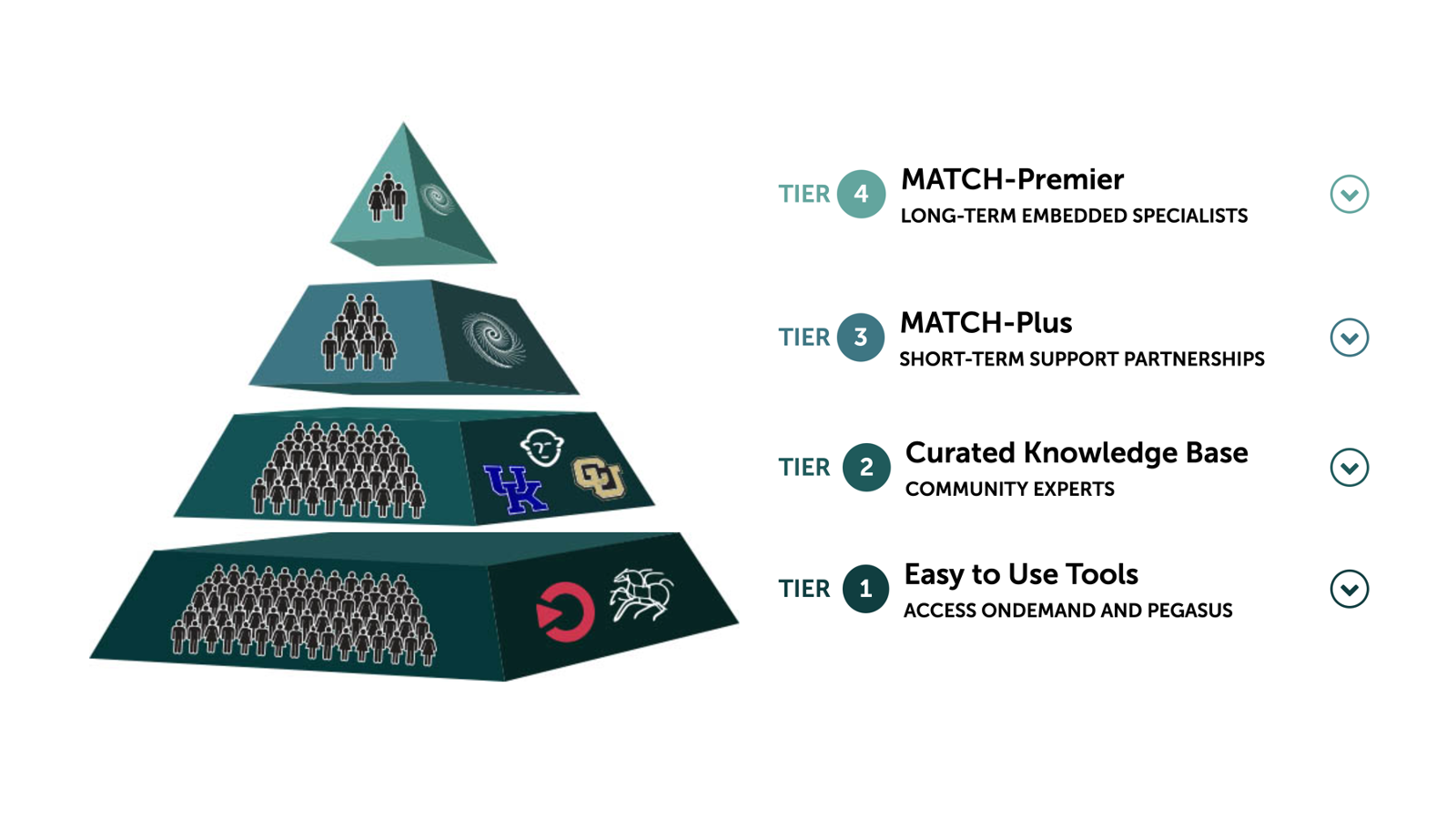
MGHPCC is one of the lead institutions on ACCESS MATCH (Multi-tier Assistance, Training & Computational Help), a program developed in response to Track 2 of the NSF ACCESS solicitation and is funded by NSF Award #2138286. The primary focus of Track 2 is Research Support. Centered around three themes MATCH seeks to:
1) Leverage modern information delivery systems and simplify user interfaces to deliver support when needed.
2) Engage community experts to develop materials that reduce the learning curve for end-users.
3) Match specialist mentors and student mentees with projects to provide domain-specific expertise.
The project incorporates Open OnDemand, the Pegasus workflow-management system, a multi-faceted knowledge base and processes embedded in the Connect.CI portal in a multi-tiered support framework.
MATCH builds on the successful Northeast Cyberteam program, an NSF-funded, MGHPCC-hosted initiative to make advanced computing resources available at small and mid-sized colleges and universities in New England that might not otherwise have access to them. MATCH re-appropriates Northeast Cyberteam tools and methods in a scalable approach to addressing increasingly sophisticated and diverse researcher needs, enabling new discoveries at the forefront of science and society.